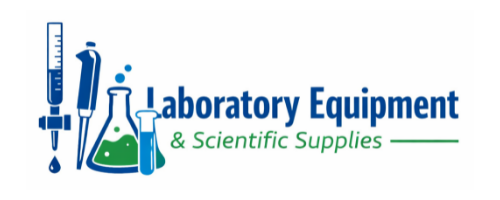Custom Laboratory Glassware: Precision Solutions for Advanced Research
Main Takeaway: Custom laboratory glassware provides tailored, high-performance solutions that enhance accuracy, safety, and efficiency in scientific workflows by meeting exact specifications-from intricate reactor components to specialized distillation systems.
Introduction
Precision is paramount in modern laboratories. Off-the-shelf glassware often falls short when experiments demand unique geometries, bespoke volumes, or specialized ports. Custom laboratory glassware bridges this gap, delivering equipment engineered to your exact needs. These tailor-made pieces enhance reproducibility, reduce setup complexity, and can lead to significant long-term cost savings through improved durability and performance.
What Is Custom Lab Glassware?
Custom lab glassware is crafted via expert scientific glassblowing or precision machining to fit specific experimental requirements. Rather than selecting from standard catalogs, researchers collaborate with manufacturers-providing sketches, CAD files, or detailed descriptions-to produce bespoke items. Applications range from bespoke reactors with multi-neck configurations to condensers optimized for unique cooling demands.
Advantages Over Standard Glassware
Custom glassware outperforms generic options by:
Exact Fit: Eliminating adapters and workarounds ensures seamless integration with existing apparatuses.
Enhanced Accuracy: Precisely calibrated volumes and joint dimensions improve measurement reliability.
Improved Safety: Reducing the number of connections lowers leak and contamination risks.
Optimized Performance: Designs tailored for optimal fluid dynamics or heat transfer boost experimental efficiency.
Durability & Cost Efficiency: High-quality materials and precise fabrication extend service life and reduce replacement frequency.
Common Custom Glassware Types
Nearly any glass component can be customized:
Flasks & Beakers: Non-standard volumes, reinforced walls for vacuum use, specialized spouts, multiple necks, or custom thread sizes.
Condensers & Columns: Graham, Liebig, or coil condensers with modified length or coil density; packed or structured columns optimized for specific separations.
Reactor Vessels: Multi-port reactors with integrated baffles or sampling ports for complex syntheses.
Adapters & Connectors: Leak-proof transitions between disparate joint standards.
Materials: Borosilicate vs. Quartz
Material selection hinges on chemical compatibility, temperature range, and optical requirements:
| Feature | Borosilicate Glass | Quartz (Fused Silica) |
|---|---|---|
| Maximum Service Temp. | ≈500 °C | ≈1,100 °C |
| Chemical Resistance | Excellent | Exceptional |
| UV Transparency | Limited | High |
| Typical Cost | Lower | Higher |
Customization Features
Advanced modifications enable truly bespoke solutions:
Joint & Port Variations: Any combination of ground-glass joint sizes or custom threaded fittings.
Integrated Accessories: Built-in thermometer wells, sampling ports, magnetic-stir bar retainers.
Special Coatings: PTFE-like non-stick or chemically inert internal coatings.
Branded Markings: Permanent laser-etched logos, part numbers, graduations, or compliance symbols (e.g., CE marking for marketed instrument components).
Design & Ordering Process
Define Requirements: Provide detailed sketches or CAD models with all critical dimensions, material choice, and functional features.
Manufacturer Consultation: Discuss tolerances, surface finishes, and order quantity to refine the design and receive lead-time estimates-typically 2–6 weeks for prototypes and 4–12 weeks for larger runs, depending on complexity.
Quotation & Approval: Confirm pricing, minimum order (often one unit), and delivery schedule.
Production & Inspection: Fabrication is followed by quality checks, pressure testing (if required), and any marking or coating processes before shipment.
Lead Times & Quantities
Prototypes: Single pieces often ready within 2–6 weeks.
Small Runs: 5–20 units may take 4–8 weeks.
Production Orders: Larger batches (50+ units) typically require 6–12 weeks, with pricing discounts available.
Repair & Maintenance
Many custom glassware suppliers offer in-house repair services. Skilled glassblowers can mend cracks, re-joint broken sections, or reapply coatings-extending the lifespan of complex apparatuses and reducing total cost of ownership.
FAQs
Can custom glassware be repaired?
Yes. Repaired joints and minor breakages restore functionality without full replacement.
Are there minimum order requirements?
Most suppliers accommodate orders as small as one unit, while also supporting large-scale production.
What industries commonly use custom glassware?
Custom glassware is prevalent in academic research, pharmaceutical R&D, chemical processing, and industries requiring specialized analytical setups.
Investing in custom laboratory glassware ensures your research and production processes operate with unmatched precision and reliability. Engage with a reputable scientific glassblower to transform your unique requirements into optimized, durable glass tools-and elevate your laboratory’s capabilities.
